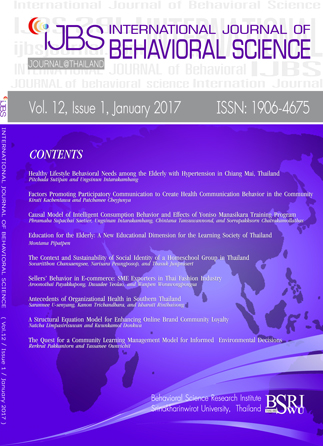The Context and Sustainability of Social Identity of a Homeschool Group in Thailand
Main Article Content
Abstract
The research objectives were to study the advantages of homeschool group, its context and identities. In this study, qualitative research methodology was employed. Key informants were mainly parents from 7 families attending one homeschool group in Bangkok, Thailand. Four advantages of homeschool group emerged in the focus group discussions of homeschool parents in this group- resource sharing, social skills, adequate number of the learners and opportunity to learn with other children. In terms of the context, this group was established by a group of parents who had their child(ren) study at the same kindergarten. Parents and Mr. Tim (alias; a consultant) played the role of teachers. Additionally, the environment of the place for learning seemed useful and appropriate for children to learn. From the aspect of social identity, the parents’ identities related to the home school group were child-centered, thinking out of the box and trusting one another. The process of identity formation started with collecting experiences before selecting the right ones, and then connecting them to their own personal philosophy. This process also included taking feedbacks from social environment that supported this, as the feedbacks could convince that all identities were authentic. The conditions that helped sustain these identities were influences from media, having well-established relationship with the other members of the group, attaining sufficient social support and perceiving children’s advancement.
Keywords: socialization, identity formation, sustainability of identity


